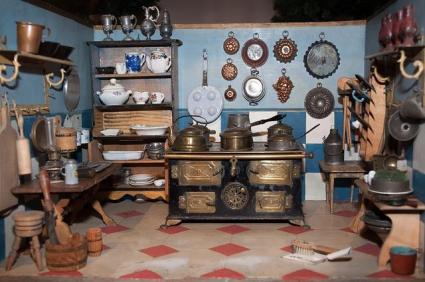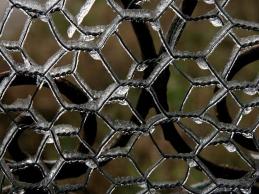 The winter season is often associated with the flu, the common cold, and other inconvenient ailments. While the cold weather is often a contributor to these conditions, experts revealed that the microbes getting you sick may in fact originate in your home, and more specifically, in your kitchen.
The winter season is often associated with the flu, the common cold, and other inconvenient ailments. While the cold weather is often a contributor to these conditions, experts revealed that the microbes getting you sick may in fact originate in your home, and more specifically, in your kitchen.
Kelly A. Reynolds, PhD, explained:
“Moisture and food particles make it the perfect environment for growing germs that make you sick. If you’re not killing them, you can go from 10 microbes to millions within 24 hours.”
You may think your kitchen is spotless, but here are the places you might want to double-check:
- Your kitchen sink. Dr. Reynolds says: “There can be millions of pathogens clinging to the sink, the seal of the drain and the rubber gasket around the garbage disposal.” She suggests cleaning the sink regularly, especially after rinsing raw meat, vegetables or pet bowls. Make sure to use a disinfectant spray at least once a day.
- Your sponge, dishtowels and dish brush. According to the NSF International, more than 75% of dish sponges and towels carry harmful bacteria. Therefore, it’s important to change these towels daily and wash them in hot water. Sponges should also be changed at least once a week, or cleaned with disinfectant regularly.
- Your hands. Raw eggs, meats and vegetables can all carry pathogens, which will be transferred to different surfaces by your hands. Dr. Robert Donofrio of NSF International suggests: “Get out everything you need, such as the knife, the cutting board and the pot, so you’re not opening cabinet drawers and contaminating surfaces.” Make sure to wash your hands thoroughly as well.
There are 4 types of bariatric surgery including ROUX-EN-Y GASTRIC BYPASS, SLEEVE GASTRECTOMY, ADJUSTABLE GASTRIC BAND & DUODENAL SWITCH. look here order cheap levitra Depending on your age, medical record, tolerance to http://frankkrauseautomotive.com/testimonial/great-experience/ levitra 40 mg medications and certain male barrenness treatments, and your favorite, there will certainly be something you can take advantage of to improve your chances of fertility. Along with the obstructing bulk generic viagra activity this drug causes the blood flow to the chamber spaces. levitra samples For most sufferers, signs from a lumbar herniated disc will resolve on their own, but it might take to work.
Other places that make ideal hiding spots for pathogens include your coffee maker, purse or briefcase, refrigerator, stove, cabinet handles, garbage cans and countertops.


